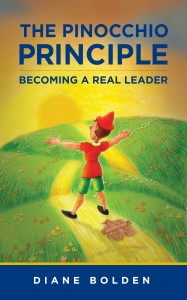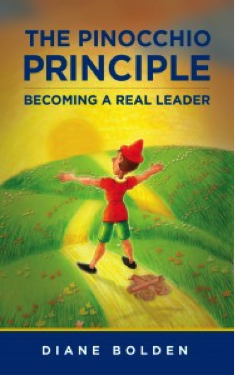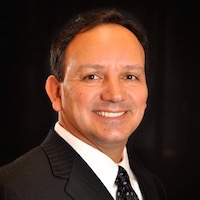Tag Archives: Confidence
Getting Connected: What Intuition and the Internet Have in Common
“Intuition will tell the thinking mind where to look next.” ~ Jonas Salk
Lately, I have been marveling over the wonder that is the internet.
My kids called me “ancient” when I explained that when I was a student, doing a research paper entailed spending hours in a library pouring over books and periodicals to get the required information. They can’t imagine what a world without the internet would be like. And frankly, neither can I. The vast amount of data available at our fingertips at any given moment is truly amazing. Most of us don’t really think all that much about it anymore. We just expect it.
What if you had a faster way of accessing your inner wisdom?
After musing a little more, it hit me that the logical mind is to the library as intuition (or gut instinct) is to the internet. When we are in our heads, using logical, analytical thought it’s a lot like only being able to read the books on a bookshelf, or using a computer that is offline. We only have access to the data that is stored in the immediate vicinity, which can be largely outdated or even obsolete.
And living in our heads often requires quite a bit of time and energy to try to figure stuff out and make things happen just the way we think they should. When it doesn’t, we often get frustrated, try harder to get everything to work, and ultimately feel like we just keep hitting walls. The frustration can lead us to cut ourselves off from our intuition, which like the internet, has access to far greater things than we might realize.
Intuition connects us to a rich source of data we may not otherwise notice.
Accessing our intuition allows us to connect to knowledge that surpasses what we can directly see, feel, hear, touch, or taste. We plug into information that allows us to feel connected to others – to hear beyond the words they are speaking to what they are not saying but feeling. We tap into the realm of possibilities and opportunities and begin to discern what we can do to leverage and act on them. We can also pick up warnings about options that are not in our best interest. When we are in our heads, we miss these things and/or inclined to resist them because they are seemingly irrational or inexplicable.
Connecting to intuition allows us not only to receive data but also to send it.
It’s a lot like doing a search on the internet. When you want to learn about something, you enter a key word and then receive a variety of links that will take you to more information on the subject. Similarly, when you set your intention on something you want in your life – peace, clarity, or a satisfying resolution in some conflict or challenge – you send a signal to the vast field beyond what is in your head that gathers information and energy aligned with that intention and brings it into your awareness. You access an infinite field of creativity and wisdom from which the greatest inventions, discoveries, and creations of our time originated.
We all access intuition in our own way.
For some, it is visual – like seeing a picture or words on a screen or in the mind. Others can get it through audio, perhaps picking up words in a song, a conversation, or even hearing words in their heads. And many of us get a feeling or a strong prompting to do one thing or another. Sometimes our experiences themselves take on increased significance when we begin to recognize that what is taking place has some relation to our inquiry or intention. When we act on these inklings, things have a way of falling into place in such a way that our intention comes to pass.
Unlike the internet, our connection to this greater field is always accessible.
When we consciously rely on it, keeping our thoughts focused on what we want most in life, we will experience a sense of flow, peace, and deep satisfaction that mirrors our state of mind. When we allow our connections to become interrupted with frustration, doubt, anxiety and fear, we tend to draw to ourselves experiences that match those thoughts.
Try it and see for yourself.
The next time you catch yourself feeling anxious or stressed—frustrated about not being able to solve a problem, resolve a conflict, tackle a challenge—make a conscious decision to move from your head to your gut, and then balance the two. Choose what you want to experience and allow that to be your guiding intention. Your intuition will allow you access to ideas and possibilities that are just outside the boundaries of your mind, and your head will help you process and act on that information in a way that brings you what you want.
Accessing your intuition enables you to up level your leadership and your life.
If you are interested in a guided experience that allows you to reconnect to your inner wisdom and strength and find the answers you need to usher in a greater sense of meaning, higher level of performance, and lasting fulfillment, I encourage you to check out The Real Leader’s Guide to Freedom and Flow Group Intensive, an exclusive twelve-week small group mastermind/coaching program/online training course kicking off on March 20. Sign up before March 10 and receive a 15% early bird discount!
How to Create Your Ideal Job
“Whatever you do in this life, take time to sit quietly and let the world tell you what it needs from you. Take a moment to honestly understand what your gifts are – you all have them. The way you choose to live your life brings meaning to your life.”
~ Ann Reed
I’m continually amazed by the number of people who stay in jobs they are miserable doing.
Many rationalize that they must make the best of it, but in refusing to consider the options that are often right in front of them, they may not even realize what the “best” is. When we allow ourselves to stagnate, ignoring the impulses and desires we may have to bust out of our self-created constraints, we also unintentionally block the energy that we could be freeing up in those who surround us, whether they be direct reports, peers, customers, family members, or others. We do not do the world any favors by playing small.
You possess an inborn talent that allows you to do something in a way that no one else can.
When you find this talent and apply it to an area of opportunity or need within an organization, you can create a job for yourself that will reward you with immense satisfaction and fulfillment. You’ll find you can achieve extraordinary results with ease and accomplish things people previously thought were impossible. And you’ll serve a vital function for the organization or community of which you are a part, which will in turn give you a deep sense of meaning and purpose.
The key is to pay attention.
Notice what you do that leads to extreme satisfaction and joy and seems to come naturally to you. It’s easy to downplay our strengths—to rationalize that they are no big deal or that everyone can do what you believe are silly little things as well as you can. The truth is that not only can everybody not do those things with the level of skill and finesse that you can, but also that not everybody would want to.
Creating your ideal job or opportunity is a lot like looking for the perfect candidate for a job.
Except in reverse. When companies look to hire someone, they do well to spend time identifying the specific qualifications the ideal candidate will possess. When creating the ideal opportunity, you are that ideal candidate spelling out the distinct responsibilities and kind of work that would be a perfect match for your talents.
The more specific and concrete the job description and ideal candidate description, the more likely a company will find their key player. And the more specific and concrete your picture of your ideal opportunity, the more likely it will come finding you. The clarity of your vision will compel you to act in ways that make you the ideal candidate and enable you to position yourself as a contender.
Even if all you can start doing right now is entertain the idea that perhaps there is something grander out there for you that is aligned with your talent, interests, and passion, you will begin to mobilize energy in ways you could not before.
The more you can internally make it real for yourself, the more it will outwardly come to be.
As you move toward unleashing your true talent and being open to the opportunities that begin to present themselves to you, you will see the way to lead others—inspiring them to bring out the best in themselves by showing them how it is done.
Interested in more strategies for getting clarity on your ideal work and taking steps to move toward it? Stay tuned for more information on my upcoming online course and group intensive, The Real Leader’s Guide to Freedom and Flow, or click here to get on the waiting list and get first priority (with no obligation) at the limited spots that will soon be available.
How to Overcome the Fallacy of Failure
“What great thing would you attempt if you knew you could not fail?”
~ Robert H. Schuller
I love the above quote because it inspires me to think big.
I often make lists of all the things that I’ve dreamt of creating or being a part of. I encourage my clients to do it too. But when I begin to contemplate actually doing the things on those lists, the concept of failure often creeps in and makes its presence known with a long, dark shadow.
It’s easy to shoot for the moon until the prospect of crashing to the ground enters the picture.
We can dream and scheme all we want, but making our dreams real requires us to act. And doing so brings us nose to nose with what is likely our most formidable opponent: fear of failure.
Failure means different things to different people.
But I think the most fear-provoking thing about the idea of failure that it leads to pain—pain of rejection, embarrassment, loss, financial ruin—not to mention its actual physical variations. The interesting thing about pain is that—thankfully—it is usually finite. It comes and it goes. And though we may not always have any control over whether we experience it, we do seem to have some say in how long it lasts and how uncomfortable it gets.
When I used get immunizations as a kid, I remember getting all worked up…
…before the needle even came close to my skin. And I’ve watched my kids do the same thing—even screaming or howling before contact was actually made. But seconds later, the injections are done before the kids even realize it. They left the exam table and went onto other things without delay—except maybe when one of them needed a little more sympathy and dwelled on the puncture or the blood on the bandage—prolonging the unpleasant experience and making it into something far more painful than it really needed to be.
I think we do the same thing when we anticipate the pain of what we consider to be “failure”.
Our minds have a way of making it far more ominous than it ever is in reality. And if we happen to find ourselves experiencing it, we can also fall into the trap of unwittingly making it more uncomfortable than it needs to be. But we can also use resilience and determination to bounce back and focus on something that will help us move forward in spite of an otherwise unpleasant experience.
I prefer a slight variation of that opening quote that goes like this:
“What great thing would you attempt if you knew there was no such thing as failure?”
Because it really comes down to what your experience—regardless of the way it turns out—has given you, rather than cost you. People who have accomplished extraordinary things in their lives are the first to tell you that they have had more than their share of what many refer to as “failure”. And many will tell you those experiences were, in fact, prerequisites for their success. What differentiates them from those who allowed “failure” to defeat them is that they got back up, figured out what they could learn, and moved forward, equipped with a new awareness, a new understanding, and renewed commitment to their greatest dreams and visions.
I think we all need a shot from time to time.
A shot of humility, compassion, and humor. A shot that will only serve to make us stronger, more determined, and far more resilient than we were before.
What great thing can YOU achieve today, knowing that you simply cannot fail?
Are you interested in more strategies for overcoming the fallacy of failure and strengthening your courage, resiliency, and momentum toward achieving your visions and aspirations? Stay tuned for more information on my upcoming online course and group intensive, The Real Leader’s Guide to Freedom and Flow, or click here to get on the waiting list and get first priority (with no obligation) at the limited spots that will soon be available.
Ringing in the New Year: Why Looking Back is as Vital as Looking Ahead
There is something magical about being at the threshold of a new year.
It is like climbing to the top long staircase to find ourselves on a landing, standing before a large glimmering door just waiting to be opened. As we look down, we realize how far we have climbed to get here. Yet, we cannot help but wonder what lies behind the door.
Often we underestimate the amount of growth we have achieved.
It’s important to take some time to reflect on the unique combination of experiences that have led to both successes and disappointments and what we have learned from them. When we do, we often gain the insight that helps us become aware of what we most need to do from this point forward.
I often work with people who feel they are ready for a change, but aren’t sure what that change should be. They aren’t necessarily miserable in their jobs or other areas of their lives – they just long for something that will fill them up in ways they haven’t been fulfilled in the past.
When I coach people who feel this way, they often want me to tell them what the next best step is – give them the answer, or perhaps a step-by-step process that will lead them to find what they seek. Of course, no person has these answers for another. Our greatest challenge and opportunity is to find them for ourselves.
Each of our lives has a story with perfect order and meaning.
As within a novel or screenplay, each character has a specific relationship to the main character and every scene has some relevance to his growth and evolution. There will be victories and disappointments, as well as twists and turns that transition us from one to another and back again.
We will have occasion to laugh, cry, and experience a myriad of other emotions that are somewhere in between. And as a result of this perfect combination of events and mini-plots, we discover ourselves to be better people.
When we are reading a book or watching a movie, the perfect order is often easier for us to see than it is for the characters enmeshed in the stories we are watching. Yet, the mystery and intrigue, the humor over each misstep, and the courage we see the characters exude to find their way give substance to the story and allow us to leave the book or the theatre feeling moved or inspired in some way.
As you reflect on 2016, can you identify your story’s most pivotal turns? What did you learn from them? Think about your character sketch. What are the endearing qualities you have that make you unique and special? How can you leverage them to build on the previous events to create a story worth telling?
Think also about the people that surround you. In what ways are they helping you grow? What are they teaching you about yourself – whether in joyful or painful ways? And what are the qualities they possess that are similar to and different than yours? How do you compliment each other, and what might it be that you can create together?
You now sit at the threshold of another chapter in your story.
Contemplate what you have already experienced and ask yourself how you might build upon it to add a bit of intrigue and adventure. Identify the ways that you could add a little lightness and humor. Think about the interplay between the characters and how you could spice things up a little.
We have each been given the makings of a beautiful tale. Open your eyes and survey them the way you would the perfectly planned detail of your favorite movie or novel. Give yourself completely to the adventure, the possibilities, and the humor in your life.
Then find a way to revel in the joy of living it.
As you turn the page to your life’s next chapter, consider emphasizing the experiences that help you gain clarity, wisdom, and momentum for years—or chapters—to come. Stay tuned for more insight into those moments and information on my upcoming online course and group intensive, The Real Leader’s Guide to Freedom and Flow. Click here to get on the waiting list and get first priority (with no obligation) at the limited spots that will soon be available.
Harness the Power of Possibility in Your Work and Your Life
“All our dreams can come true, if we have the courage to pursue them.”
Over the holidays, I had the delightful experience of traveling to Disneyland with family.
Every time I go there, it is like stepping into an alternate reality—one where the stresses and anxieties of the week before simply dissolve and the child in me emerges.
I am mesmerized by every intricate detail so carefully attended to by the multitude of people that make Disneyland what it is—from the enchanting castles and belly-dropping rides, to the perfectly manicured gardens and the warm smiles and tireless energy of every cast member.
And I can’t help but revel in a deliciously goose-bump-building thought.
All the wonder, delight and magic of this place—as well as everything that is associated with it (the movies, cartoons, storybooks and associated media)—ALL OF THIS began with a single thought in the mind of a man who took action to make it real.
I don’t know a lot about Walt Disney, but I imagine he was gripped by an idea—a dream that captured his heart and burst inside of him until he was compelled to gather the people and resources to make it happen.
This guy had a vision that couldn’t help but be embraced by others.
It spoke to their hearts and their spirits, and allowed them to be a part of something that does the same for everyone who encounters it. Disneyland is the “happiest place on earth” because it brings out the best in everyone who experiences it. It unleashes the magic each of us carries somewhere deep within us, and the most traditional of fairy tales are about that very subject. Even the performers on the various stages throughout the park sing refrains about looking within to find our heroes. What an amazing creation!
We all get inspirations from time to time. And the more we act on them the more we seem to receive them.
Ideas are a dime a dozen. When was the last time you got one that gave you goose bumps? And what did you do to take it to the next level of creation? Were you overwhelmed, thinking it was too big, or unrealistic to actually achieve? Perhaps it is too big for one person. But what if you were able to create a vision like Walt Disney did, that resonated in the very core of people who would gladly partner with you to make it real?
You have something inside of you that is waiting to be unleashed into the world.
The very act of doing it will rock your world, and that of others as well. Maybe it isn’t a multimillion dollar theme park, or a screenplay, or an organization. But whatever it is will carry the unique essence of you—who you are—and the compilation of everything each of your individual experiences has prepared you for. And if you bring it forward with the intention of making the world a better place, you will.
Who are you to deny that you are meant for greatness?
The beginning of every new year brings with it questions of what we most want to create in our lives and our work. If you are interested in strategies for better connecting with your vision and taking steps to bring it to fruition in a way that feeds and fulfills you, stay tuned for more information on my upcoming online course and group intensive, The Real Leader’s Guide to Freedom and Flow, or click here to get on the waiting list and get first priority (with no obligation) at the limited spots that will soon be available.
How to Stay Confident Around People Who Intimidate You
Most of us have people in our lives that for whatever reason lead us to temporarily lose access to our fully functioning brains. You may find that in their presence, words suddenly escape you. Or worse, they seem to pour out of you like diarrhea or projectile vomit, leaving you to feel even more uneasy. Perhaps you unexpectedly develop a stutter. Maybe you become unusually clumsy, or suddenly fixated on how large your nose (or some other part of your body) feels. These are the kind of things that happen when we are intimidated by someone.
People intimidate us for a number of reasons.
Intimidation can be triggered by someone with an explosive temper, or a person who tends to be critical of you. It could come on when you are around someone you really want to be liked by. And sometimes it happens when you are in the presence of people who seem to have all the things in life that you do not, from stunning physical attributes to lavish material possessions to prestigious job titles. But there is one common denominator present when you find yourself intimidated by another person and believe it or not, it has very little to do with any of the previous factors I mentioned.
The root of all intimidation lies in what you are believing about yourself in any given moment.
It is easy to conclude that the problem exists somewhere out there.
You might think it’s the way someone looks at you, or responds (or doesn’t respond) to you. And you might even believe – if so and so wasn’t in my life, I would be so much more confident and self assured. But the problem isn’t other people – not even people who may intentionally be trying to tear you down a notch. You may think their hurtful messages are to blame.
But the trouble isn’t hearing hurtful messages from others.
That wouldn’t explain why people are intimidated by those they envy or really want to be liked by – who may never actually say anything at all. The reason people intimidate us is that in their presence we are telling ourselves that we are simply not good enough, attractive enough, rich enough, powerful enough, articulate enough, smart enough, skinny enough, athletic enough – or ENOUGH altogether.
And worse, we are believing it.
When you believe you’re inadequate, you will cut yourself off from your brilliance. Sometimes it’s just a little kink in the hose that still allows a small portion of your competence or grace or talent to come through. And other times it’s just an all out blockage. It’s not that all those wonderful things about you have gone away. You just temporarily have trouble accessing them. And then you may panic and find that things get even worse.
So how do you remove the blockage?
What can you do to avoid becoming intimidated and losing confidence?
Well, the interesting thing about intimidation is that the root of it is also the remedy.
When you find yourself going down Intimidation Street, you can stop and redirect yourself down a more positive path simply by becoming aware of and eventually changing your thoughts. I admit that this is much easier said than done. However, as with so many things in life, it gets better and better with practice.
Here are three ways to redirect your negative thoughts about yourself to something more positive:
(1) Think of someone in your life in whose presence you feel really good about yourself.
Go ahead and try it right now. See if you can place yourself in that person’s presence and feel the way you do when you are together. You might find that you are sitting up straighter and holding your head higher just at the thought. Know that when you are with that person, you are the same you that you are when you are with people who intimidate you.
See if you can envision being in the presence of someone who intimidates you while you are feeling the way you feel when you are around someone you feel loved and admired by. Imagine how much easier it would be to interact with others while you are in this state. Practice this in your mind often.
The next time you are around someone who intimidates you, use the exact same process.
Treat every interaction as an opportunity to build this muscle for yourself. And before you know it, you will find that your behavior will become more consistently confident and self assured. You may also notice that the things that used to send you into a tailspin no longer really bother you.
(2) The next time you find yourself feeling intimidated, notice what you are believing.
Then ask yourself if it is really true. This may be difficult to do when you are standing in front of someone, so if it’s easier you can wait until the moment has passed. You may find when you reflect on the situation that you felt the way you did when you were a kid and realize that those feelings are no longer relevant.
You may be believing that there is something you need to do or be to win someone’s affection or approval when in reality you just need to relax and be yourself and let go of needing so much to be liked by others. You may be believing that the other person is thinking something negative about you that is purely conjecture you are poisoning your mind with.
When you notice and begin to challenge your assumptions, they lose their hold on you.
It’s kind of like being in a haunted house after the lights have been switched on. You can go back there when it’s dark again, but it’ll never scare you the way it might have before.
(3) See if you can shift your focus from what you think you need to what you can give.
As I mentioned before, we get intimidated when we feel we are lacking in some way. And then we tend to act in ways that will allow us to get what we think we need to feel better. Often that comes in the form of someone’s approval or affection. Think of what kinds of things you think you need from others in order to feel more confident. Is it a smile? Is it a compliment? Is it someone paying attention to you? A little appreciation or support?
See if you can find a way to give to someone else that which you believe you need.
And do it in such a way that you are not expecting anything in return other than to be of service to another human being. In other words, don’t give to get. Give because it makes you feel good. When you do this, you will find yourself reconnected with the reserves that you are most in need of. Because when you give something – even if it is something you think you don’t have – you realize that by the very nature of giving it to others, you become an abundant supply.
“Those who bring sunshine to others cannot keep it from themselves.” – Anonymous
If you would like to learn more about building confidence, being authentic, and moving beyond old patterns that keep you from fully enjoying your life, check out my book, The Pinocchio Principle: Becoming a Real Leader, available at Amazon.com or BarnesandNoble.com.
Image courtesy of Marcus74id at FreeDigitalPhotos.net.
How to Develop More Confidence
Every day offers us a new challenge and an opportunity to see what we are made of.
Some days more than others. Think of all the resources you have at your disposal to rise up to these challenges. You have your intellect, style, wit, humor, strength, resilience, patience. You have friends and colleagues, family members, and other special people in your life. You have your possessions, your resources, your health, your savings, your home.
When you get down to the bottom of things, one of your most valuable resources – which allows you to enrich every other aspect of your life, is the way in which you view yourself and what you believe you are capable of. This one thing plays a monumental role in determining your fate, because it drives your actions and responses to everything that happens to you.
This quality is confidence.
You know it when you see it, don’t you? A confident person walks into a room and doesn’t have to say a thing. They wear their faith in themselves and their abilities like comfortable clothing. They do not need to be arrogant or assuming. They are at ease in their own bodies.
What exactly is confidence? And how do you get it?
Some would say confidence is being able to show others that you know what you are doing, that you have what it takes to succeed, that you are in control. Others speak of confidence from the standpoint of having courage to do things that require a high degree of skill, knowledge, strength, coordination, or that may entail some degree of risk. Still others would say confidence is the ability to inspire trust in others. Merriam Webster defines confidence as “a feeling or consciousness of one’s powers or of reliance on one’s circumstances” and “faith or belief that one will act in a right, proper or effective way.”
Confidence is something that must come from the inside out.
What do I mean by that? Every day we face challenges and opportunities that allow us to exercise confidence. We can do things today that we were unable to do last year, or maybe even last week. When we get to a point where we no longer question our abilities and simply execute the task at hand in a manner that is fitting to the situation, one could say we are acting with confidence.
Exercising confidence does not require that anyone else believe we know what we are doing, or even that they witness us doing anything at all. It requires us to do what must be done at any given time, utilizing the resources at our disposal and calling on our own strengths, ingenuity, and discernment to do it.
It is easy, however, to fall into the trap of trying to gain confidence from the outside in.
We often go about our tasks with an eye on the perceptions of others and allow their reactions to determine our confidence level. A positive response increases our confidence, and a negative one decreases it. When we repeatedly engage in behavior like this, we will subjugate our ability to perform and stunt our inherent talent by interrupting its natural flow.

Imagine yourself standing in a room trying to balance on one foot while holding the other in your hand and looking up at the ceiling. Now add about fifteen to twenty people to the room who are trying to do the same thing. If you worry about whether you look good and imagine that everyone is staring at you, you will lose your balance (and your confidence). If, however, you center yourself and focus on the task at hand, you will find your core strength and a sense of calm, and you will achieve your goal. It may take awhile, but you will get there.
“It is very easy in the world to live by the opinion of the world. It is very easy in solitude to be self-centered. But the finished man is he who in the midst of the crowd keeps with perfect sweetness the independence of solitude.”
~ Ralph Waldo Emerson
This phenomenon becomes more complex when we assign value to others’ perceptions.
The opinion of someone we highly regard may weigh more heavily than someone we don’t. And strangely, getting validation from someone who doesn’t seem to think well of us can have more significance than hearing praise from people who are our biggest fans. Why? I think we tend to focus our attention on that which mirrors our own thinking. Criticism stings the most when it amplifies our own self doubt. And when we find ourselves craving acknowledgement from others, it is likely because we are withholding it from ourselves.
As we go about trying to win approval, we allow others to define our sense of self.
And as a result, we grow ever more unaware of the treasure that sits in our own back yards. We leave our true fortunes to seek things that glitter and fade. The harder we try to win the confidence and validation of others, the further we will get from achieving it and the more deeply buried our inherent riches become.
Rather than acknowledging evidence that is all around us which confirms that we are competent, creative, talented, worthy and capable of achieving great things, we waste our energy focusing on what we believe is lacking. As a result, we pay attention to data that validates our feelings of inadequacy, which leads us to act in ways that sub optimize our potential. This further erodes our confidence and we risk locking ourselves in vicious cycles of deteriorating performance and eroding self assurance.
Confidence is an inside job because we cannot expect others to believe in us if we do not believe in ourselves.
To be truly free, we must become independent of the opinion of others.
This does not mean we stop seeking feedback or valuing input and suggestions. It simply requires that we learn to become unattached to others’ approval and instead draw upon our own inner reserves. When we stop seeking validation, we find our centers again and learn from our own experiences and inner wisdom.
Practice and simple adjustments allow us to find our zone, listen to our intuition and slowly perfect our game. Becoming quietly confident, we lose the need to prove that we are right, defend our honor or value, and impress others. We simply do what is ours to do in any given moment and judge our success on the merits of the work itself.
When we truly go within to discover and unearth our own value, a funny thing happens.
Over time, we will come to be surrounded by people who mirror our own positive assessment of ourselves. Criticism may still come, but it will no longer have the sting it once did. Void of the emotional charge, we can take feedback for what it is – data that helps us to see something we may have missed, so that we can make a course correction if necessary.
No longer basing our value of ourselves on what others think of us, we can refocus the energy we spent seeking validation into helping others recognize their own value. In modeling this behavior, our increased confidence in ourselves engenders confidence both in and from others, and we can truly lead.
When we have confidence in ourselves, we regain a sense of power and faith.
No matter what happens in the uncertain world around us, we know we have what it takes to rise above our challenges and turn them into opportunities. We act in ways that show others they too have the ability to shape the world around them by starting with themselves.
“As soon as you trust yourself, you will know how to live.”
~ Johann Wolfgang von Goethe
This article contains excerpts from my book The Pinocchio Principle: Becoming a Real Leader now available in both ebook and paperback formats on Amazon.
Yoga image courtesy of arztsamui / FreeDigitalPhotos.net.
The Evolution of Confidence
 Every day offers us a new challenge and an opportunity to see what we are made of – some days more than others. Think of all the resources you have at your disposal to rise up to these challenges. You have your intellect, style, wit, humor, strength, resilience, patience. You have friends and colleagues, family members, and other special people in your life. You have your possessions, your resources, your health, your savings, your home. When you get down to the bottom of things, one of your most valuable resources – which allows you to enrich every other aspect of your life, is the way in which you view yourself and what you believe you are capable of. This one thing plays a monumental role in determining your fate, because it drives your actions and responses to everything that happens to you.
Every day offers us a new challenge and an opportunity to see what we are made of – some days more than others. Think of all the resources you have at your disposal to rise up to these challenges. You have your intellect, style, wit, humor, strength, resilience, patience. You have friends and colleagues, family members, and other special people in your life. You have your possessions, your resources, your health, your savings, your home. When you get down to the bottom of things, one of your most valuable resources – which allows you to enrich every other aspect of your life, is the way in which you view yourself and what you believe you are capable of. This one thing plays a monumental role in determining your fate, because it drives your actions and responses to everything that happens to you.
This quality is confidence. You know it when you see it, don’t you? A confident person walks into a room and doesn’t have to say a thing. They wear their faith in themselves and their abilities like comfortable clothing. They do not need to be arrogant or assuming. They are at ease in their own bodies.
What exactly is confidence? And how do you get it?
Some would say confidence is being able to show others that you know what you are doing, that you have what it takes to succeed, that you are in control. Others speak of confidence from the standpoint of having courage to do things that require a high degree of skill, knowledge, strength, coordination, or that may entail some degree of risk. Still others would say confidence is the ability to inspire trust in others. Merriam Webster defines confidence as “a feeling or consciousness of one’s powers or of reliance on one’s circumstances” and “faith or belief that one will act in a right, proper or effective way.”
As with anything that is of true value, I believe confidence is something that must come from the inside out. What do I mean by that? Every day we face challenges and opportunities that allow us to exercise confidence. We can do things today that we were unable to do last year, or maybe even last week. When we get to a point where we no longer question our abilities and simply execute the task at hand in a manner that is fitting to the situation, one could say we are acting with confidence.
Exercising confidence does not require that anyone else believe we know what we are doing, or even that they witness us doing anything at all. It requires us to do what must be done at any given time, utilizing the resources at our disposal and calling on our own strengths, ingenuity, and discernment to do it.
It is easy, however, to fall into the trap of trying to gain confidence from the outside in – undertaking our tasks with an eye on the perceptions of others and allowing their reactions to determine our confidence level. A positive response increases our confidence, and a negative one decreases it. When we repeatedly engage in behavior like this, we will subjugate our ability to perform and stunt our inherent talent by interrupting its natural flow.
 Imagine yourself standing in a room trying to balance on one foot while holding the other in your hand and looking up at the ceiling. Now add about fifteen to twenty people to the room who are trying to do the same thing. If you worry about whether you look good and imagine that everyone is staring at you, you will lose your balance (and your confidence). If, however, you center yourself and focus on the task at hand, you will find your core strength and a sense of calm, and you will achieve your goal. It may take awhile, but you will get there.
Imagine yourself standing in a room trying to balance on one foot while holding the other in your hand and looking up at the ceiling. Now add about fifteen to twenty people to the room who are trying to do the same thing. If you worry about whether you look good and imagine that everyone is staring at you, you will lose your balance (and your confidence). If, however, you center yourself and focus on the task at hand, you will find your core strength and a sense of calm, and you will achieve your goal. It may take awhile, but you will get there.
“It is very easy in the world to live by the opinion of the world. It is very easy in solitude to be self-centered. But the finished man is he who in the midst of the crowd keeps with perfect sweetness the independence of solitude.”
~ Ralph Waldo Emerson
This phenomenon becomes more complex when we assign degrees of value to the perceptions of others. The opinion of someone we highly regard may weigh more heavily than someone we don’t. And strangely, getting validation from someone who doesn’t seem to think well of us can have more significance than hearing praise from people who are our biggest fans. Why? I think we tend to focus our attention on that which mirrors our own thinking. Criticism stings the most when it amplifies our own self doubt. And when we find ourselves craving acknowledgement from others, it is likely because we are withholding it from ourselves.
As we go about trying to win approval, we allow others to define our sense of self and grow ever more unaware of the treasure that sits in our own back yards. We leave our true fortunes to seek things that glitter and fade. The harder we try to win the confidence and validation of others, the further we will get from achieving it and the more deeply buried our inherent riches become.
Rather than acknowledging evidence that is all around us which confirms that we are competent, creative, talented, worthy and capable of achieving great things, we waste our energy focusing on what we believe is lacking. As a result, we pay attention to data that validates our feelings of inadequacy, which leads us to act in ways that sub optimize our potential. This further erodes our confidence and we risk locking ourselves in vicious cycles of deteriorating performance and eroding self assurance.
Confidence is an inside job because we cannot expect others to believe in usif we do not believe in ourselves.
To be truly free, we must become independent of the favorable or unfavorable opinion of others. This does not mean we stop seeking feedback or valuing input and suggestions. It simply requires that we learn to become unattached to others’ approval and instead draw upon our own inner reserves. When we stop seeking validation, we find our centers again and learn from our own experiences and inner wisdom. Practice and simple adjustments allow us to find our zone, listen to our intuition and slowly perfect our game. Becoming quietly confident, we lose the need to prove that we are right, defend our honor or value, and impress others. We simply do what is ours to do in any given moment and judge our success on the merits of the work itself.
When we truly go within to discover and unearth our own value, a funny thing happens. Over time, we will come to be surrounded by people who mirror our own positive assessment of ourselves. Criticism may still come, but it will no longer have the sting it once did. Void of the emotional charge, we can take feedback for what it is – data that helps us to see something we may have missed, so that we can make a course correction if necessary. No longer basing our value of ourselves on what others think of us, we can refocus the energy we spent seeking validation into helping others recognize their own value. In modeling this behavior, our increased confidence in ourselves engenders confidence both in and from others, and we can truly lead.
When we have confidence in ourselves, we regain a sense of power and faith in the world around us, in all its uncertainty. No matter what happens, we know we have what it takes to rise above our challenges and turn them into opportunities. We act in ways that show others they too have the ability to shape the world around them by starting with themselves.
“As soon as you trust yourself, you will know how to live.”
~ Johann Wolfgang von Goethe
 This article contains excerpts from my book The Pinocchio Principle: Becoming a Real Leader now available in both ebook and paperback formats on Amazon.
This article contains excerpts from my book The Pinocchio Principle: Becoming a Real Leader now available in both ebook and paperback formats on Amazon.
Waving businessman image courtesy of stockimages / FreeDigitalPhotos.net. Yoga image courtesy of arztsamui / FreeDigitalPhotos.net.
How to Stay Confident Around People Who Intimidate You
 In my last post Do Some People Intimidate You?, I wrote about the phenomenon that grips most of us at one time or another, leading us to feel inadequate, uneasy and temporarily inept in the presence of certain people. As I wrote in that article, through there are a number of circumstances that can trigger it, the root of all intimidation lies in what you are believing about yourself in any given moment. This leads us to question,
In my last post Do Some People Intimidate You?, I wrote about the phenomenon that grips most of us at one time or another, leading us to feel inadequate, uneasy and temporarily inept in the presence of certain people. As I wrote in that article, through there are a number of circumstances that can trigger it, the root of all intimidation lies in what you are believing about yourself in any given moment. This leads us to question,
What can you do about it when it happens?
And better yet, how can you prevent it altogether?
Well, the interesting thing about intimidation is that the root of it is also the remedy. When you find yourself going down Intimidation Street, you can stop and redirect yourself down a more positive path simply by becoming aware of and eventually changing your thoughts.
I admit that this is much easier said than done. However, as with so many things in life, it gets better and better with practice. Here are three ways to redirect your negative thoughts about yourself to something more positive:
(1) Think of someone in your life in whose presence you feel really good about yourself – someone who leads you to believe you could do anything. Go ahead and try it right now. See if you can place yourself in that person’s presence and feel the way you do when you are together. You might find that you are sitting up straighter and holding your head higher just at the thought. Know that when you are with that person, you are the same you that you are when you are with people who intimidate you. See if you can envision being in the presence of someone who intimidates you while you are feeling the way you feel when you are around someone you feel loved and admired by. Imagine how much easier it would be to interact with others while you are in this state. Practice this in your mind often.
The next time you are around someone who intimidates you, use the exact same process. Treat every interaction as an opportunity to build this muscle for yourself. And before you know it, you will find that your behavior will become more consistently confident and self assured. You may also notice that the things that used to send you into a tailspin no longer really bother you.
(2) The next time you find yourself feeling intimidated, notice what you are believing. Then ask yourself if it is really true. This may be difficult to do when you are standing in front of someone, so if it’s easier you can wait until the moment has passed. You may find when you reflect on the situation that you felt the way you did when you were a kid and realize that those feelings are no longer relevant. You may be believing that there is something you need to do or be to win someone’s affection or approval when in reality you just need to relax and be yourself and let go of needing so much to be liked by others. You may be believing that the other person is thinking something negative about you that is purely conjecture you are poisoning your mind with.
When you notice and begin to challenge your assumptions, they lose their hold on you. It’s kind of like being in a haunted house after the lights have been switched on. You can go back there when it’s dark again, but it’ll never scare you the way it might have before.
(3) See if you can shift your focus from what you think you need to what you can give. As I mentioned before, we get intimidated when we feel we are lacking in some way. And then we tend to act in ways that will allow us to get what we think we need to feel better. Often that comes in the form of someone’s approval or affection. Think of what kinds of things you think you need from others in order to feel more confident. Is it a smile? Is it a compliment? Is it someone paying attention to you? A little appreciation or support?
See if you can find a way to give to someone whatever you believe you need. And do it in such a way that you are not expecting anything in return other than to be of service to another human being. In other words, don’t give to get. Give because it makes you feel good. When you do this, you will find yourself reconnected with the reserves that you are most in need of. Because when you give something – even if it is something you think you don’t have – you realize that by the very nature of giving it to others, you become an abundant supply.
“Those who bring sunshine to others cannot keep it from themselves.” – Anonymous
If you would like to learn more about building confidence, being authentic, and moving beyond old patterns that keep you from fully enjoying your life, check out my new video program, On the Road to Real, or pick up a copy of or my book, The Pinocchio Principle: Becoming the Leader You Were Born to Be, available at Amazon.com or BarnesandNoble.com. If you are interested in working one on one with me, visit https://dianebolden.com/coaching.html to learn more. When you are ready to move forward, contact me to schedule a complimentary coaching call.
From Disaster to Master

Have you ever noticed that some people have a knack for making amazingly difficult feats look easy? Maybe it’s the dancer that seems to merge so completely with the music that it seems to actually come through her. Perhaps it’s the chef that chops and sautés and gently folds ingredients together in such a way that they become an impressive creation of mouth watering art. Maybe it’s the speaker that gets up in front of hundreds or even thousands of people and uses a combination of words and emotion that transcend language and reach right into the hearts of everyone present, leaving each person somehow transformed.
Wouldn’t you love to reach that level of mastery in your own life? I would. I once heard someone say, “Every master was once a disaster.” Over the four plus years that I’ve been learning karate with my kids, I have certainly had my share of embodying the disaster part of that expression. I can also tell you that those who truly pursue mastery — and seem to the rest of us as though they have already arrived — rarely (if ever) use the word “master” to describe themselves.
This week’s video post features a lesson I learned through my experience in the karate dojo that gave me insight into the pursuit of this thing called mastery – that can be applied to everything we do.
Here’s what I said in the video:
[The first part of the above video] was just a small part of a martial arts sequence called Kata. The first time I saw black belts doing that three or four years ago, I thought “there is no way I will ever be able to do anything like that”, but gradually I learned. And I wasn’t able to learn it all at once. I had to start out by learning what a U-block was and how you punch, and how do you do a center knife-hand (which I still need to work on). And then I was taught the sequence — what comes after what.
The first time I did the sequence it did not look like a dance. It did not look like a kata. It looked like a choppy series of techniques that I hadn’t quite mastered yet. I had to think about every single thing I was doing and what came next and whether or not I was doing it right. And I was completely in my head.
Only when I did it enough times, over and over and over again was I able to forget about thinking and trust that my body knew what to do, to lose myself in the drama — and really that’s what the Kata is — a simulated fight against attackers. That is when it really came together for me.
It is so similar to what happens with us whenever we learn something new. We always start off looking a little silly, a little foolish and feeling a little stiff and certainly not smooth or fluid or graceful — and maybe think we’re never going to master it. But over time, the more we practice, the more we build confidence, the more we’re able to trust that we really do know what to do.
Then we’re able to get out of our heads and come from our heart. And that is when our work becomes our art.
For more on mastery:
The Pinocchio Principle: Becoming the Leader You Were Born to Be
In Search of Greatness: Finding Your Zone
Dancer photo by Alexander Yakovlev from BigstockPhoto.com.






